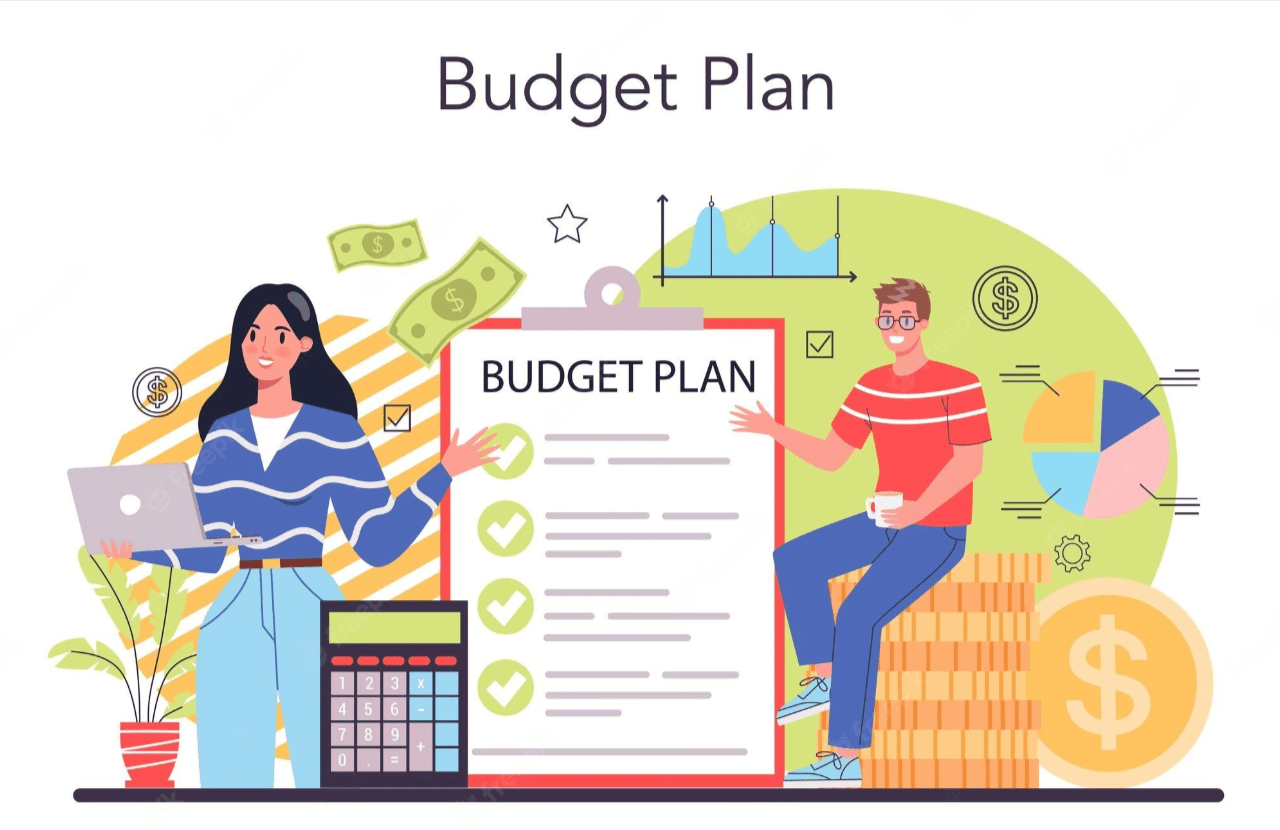Managing your finances effectively is a key step towards achieving financial freedom. Whether you want to save for future goals, reduce debt, or simply gain control over your spending, mastering budgeting is essential.
In this guide, we’ll cover 10 practical budgeting tips that can help you master your finances and set yourself up for success!
1. Set Clear Financial Goals
Before you begin budgeting, it’s important to establish clear financial goals. Knowing what you want to achieve will help you create a budget that aligns with your aspirations. Whether you’re saving for a home, building an emergency fund, or planning for retirement, setting both short-term and long-term goals will guide your financial decisions.
How to Apply This Tip:
Write down your financial goals and break them into smaller, actionable steps. Review these goals regularly to keep yourself motivated and ensure your budget is aligned with your plans.
2. Track Your Income and Expenses
To build a realistic budget, you need to understand exactly how much money is coming in and going out each month. Tracking your income and expenses is the first step towards gaining control over your finances. You can use budgeting apps or spreadsheets to record every expense, from fixed costs like rent or utilities to variable costs like dining out.
How to Apply This Tip:
Start by tracking your spending for at least a month to get a clear picture of where your money goes. This will allow you to identify areas where you can cut back and reallocate funds towards your goals.
3. Create a Realistic Budget
Once you have a clear understanding of your income and expenses, it’s time to create a realistic budget. A good budget should allocate a portion of your income towards essentials, savings, debt repayment, and discretionary spending. Make sure that your budget is achievable and not overly restrictive.
How to Apply This Tip:
Use the 50/30/20 rule as a starting point: 50% of your income should go to essentials, 30% to discretionary expenses, and 20% to savings and debt repayment. Adjust these percentages to fit your personal financial situation.
4. Prioritise Debt Repayment
If you have existing debts, it’s essential to prioritise paying them off as part of your budgeting plan. High-interest debts, such as credit card balances, can quickly spiral out of control, making it harder to achieve financial freedom. Consider debt consolidation Australia if you have multiple debts, as it can simplify your payments and potentially lower your interest rates.
How to Apply This Tip:
List your debts in order of priority, starting with those that have the highest interest rates. Focus on paying off these debts first while making minimum payments on others. If necessary, seek professional advice on debt consolidation to reduce the burden of managing multiple loans.
5. Build an Emergency Fund
An emergency fund is one of the most important financial safety nets you can have. It provides a buffer against unexpected expenses, such as medical bills or car repairs, and helps prevent you from going into debt when emergencies arise.
How to Apply This Tip:
Aim to save three to six months’ worth of living expenses in a high-interest savings account. Start small and gradually build your emergency fund over time. Having this fund will give you peace of mind and prevent you from relying on credit cards or loans when unexpected costs pop up.
6. Cut Unnecessary Expenses
To stick to your budget and achieve financial freedom, you must identify and cut unnecessary expenses. This doesn’t mean you need to deprive yourself of all non-essential spending, but being mindful of where your money is going can free up more funds for your financial goals.
How to Apply This Tip:
Review your spending habits and identify areas where you can cut back. For example, consider reducing your dining out, cancelling unused subscriptions, or shopping less frequently. Redirect the money saved from these cutbacks into your savings or debt repayment.
7. Use the Envelope System
The envelope system is a simple budgeting technique that helps you control discretionary spending. With this system, you divide your budget into categories and allocate a specific amount of cash to each category. Once the cash in the envelope is gone, you can’t spend any more in that category for the month.
How to Apply This Tip:
Set up envelopes for categories like entertainment, dining out, and clothing. This method can help you avoid overspending and encourage you to make more mindful purchases. It’s a useful tool for sticking to your budget and avoiding impulsive spending.
8. Automate Your Savings
One of the easiest ways to save money is to make it automatic. Set up automatic transfers from your checking account to your savings account as soon as you receive your paycheck. By automating your savings, you ensure that you consistently contribute towards your financial goals without having to think about it.
How to Apply This Tip:
Arrange for a portion of your income to be automatically transferred into your savings account or retirement fund each pay period. This way, saving becomes a habit, and you’re less likely to skip a month.
Whether you’re managing debt, saving for a major purchase, or preparing for retirement, a strong budget is your key to success. With the right budgeting strategy, you can take control of your finances and work towards a brighter, more secure future.
